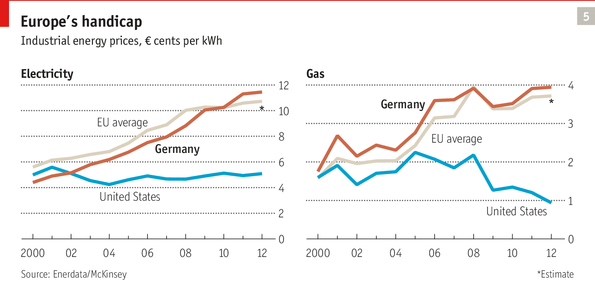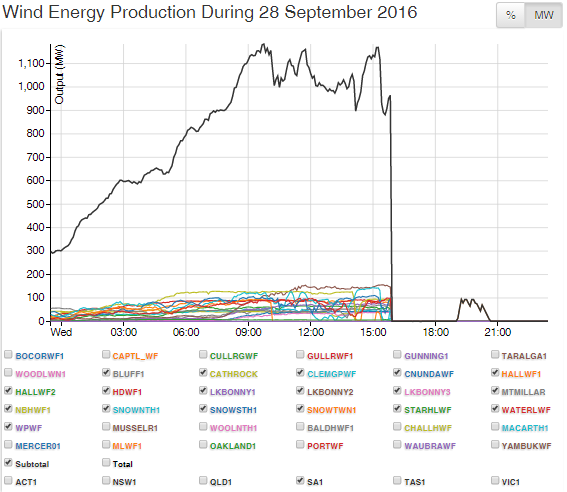A smart grid of offshore wind power that links the UK and Northern Europe is in development but at the moment its just a mixed source grid linked in to the greater EU grid.
So basically Denmark relies on back up power from coal and nuclear, just like SA has been relying on backup from Victoria coal? And when the Vic back up fell out the whole state has gone into blackout?




